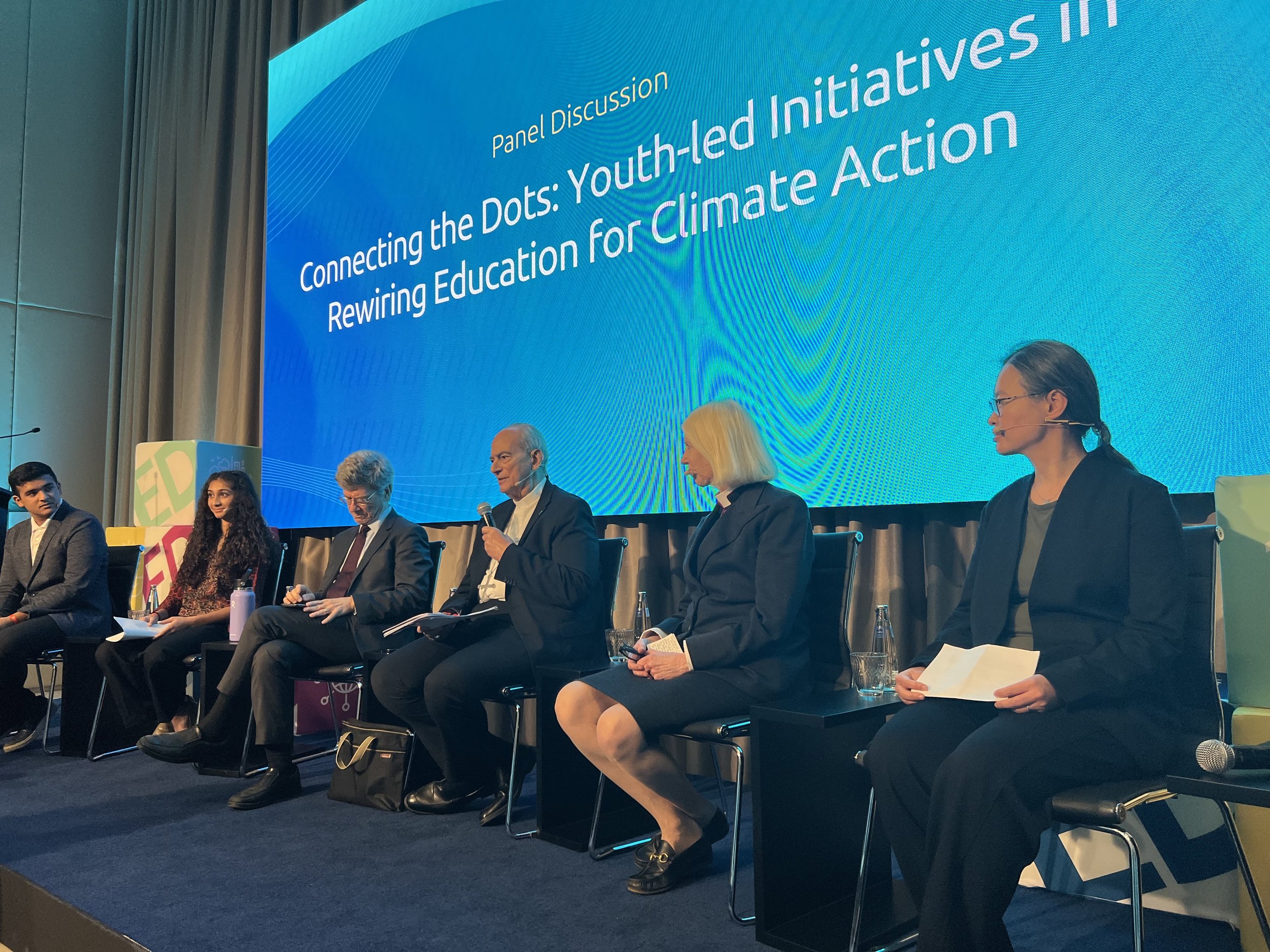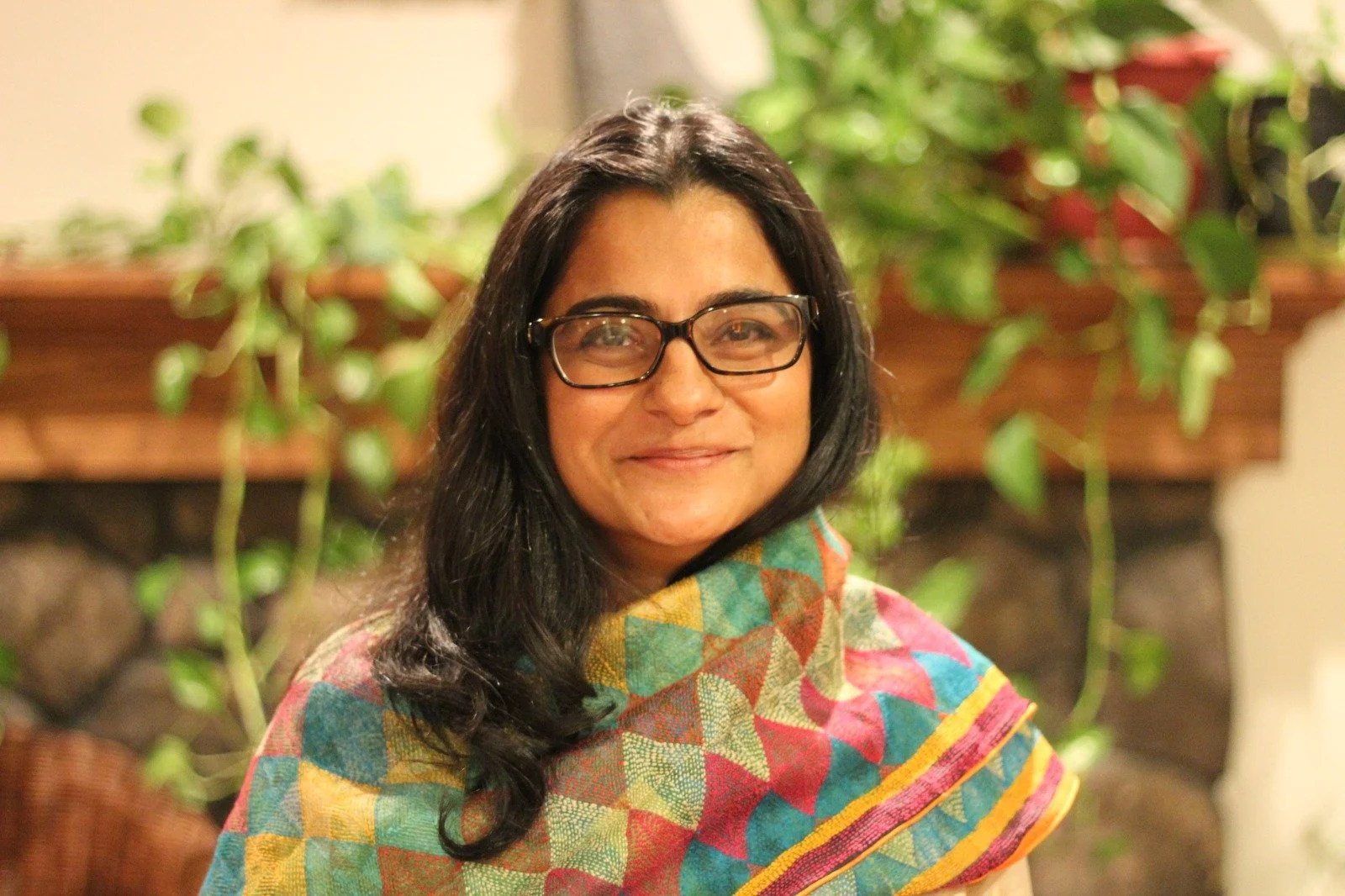At COP28, a Place for All Eco Ambassadors
Eco Ambassadors Eshaan Jain and Vidya Bindal (left and second-from-left, respectively) join a panel discussion at COP28. Photo: Radhika Iyengar.
CivicStory Trustee Radhika Iyengar is the Director of Education at the Center for Sustainable Development and the Associate Research Scholar at Columbia University. She is also the Co-founder of Millburn for Climate Action. Earlier this month, Radhika traveled to Dubai with a group of six Millburn High School students (the Eco Ambassadors) for COP28—the 28th United Nations Climate Change Conference. Now back stateside, Radhika has kindly shared her impressions of the conference.
In many ways, this COP was different from previous years. For the first time, fossil fuels were explicitly mentioned in writing during COP proceedings. Nearly 200 countries approved a global pact that will focus on “transitioning away from fossil fuels.” The pact did not include specific milestones or strategies, but it is a step toward making the inevitable happen faster.
Dubai Expo City was brimming with activity from November 30 to December 12, with 70,000 people converging on the sprawling venue. The Youth Pavilion and Greening Education Pavilion Hub were abuzz with education activities engaging various NGOs, country representatives, and youth. UNESCO’s Greening Education Agenda made Climate Education a prominent theme of the conference. Continued discussions on the Greening of Curricula, the Greening of Schools, and Quality Standards led 41 countries to join UNESCO’s call for a Greening Education Partnership.
In fact, Dubai Cares, a philanthropic body that works closely with the Ministry of Education UAE, dedicated a full day to discussing climate education. RewirED Education Summit put up many education panels: “Rewiring lifelong learning for green jobs and a green economy”; “Transformative policy and innovative financing”; “Leveraging technology and connectivity to rewire education systems for climate adaptation and mitigation”; and “People and knowledge at the heart of transformation.” More than ever before, these conversations placed the onus on education to address climate concerns. It is yet to be seen if future COPs will be able to live up to this standard or not.
In preparation for the conference, more than 15 universities across Mexico, the United States, and Canada had combined forces to creatively foster youth-led innovation for the SDGs. The Sustainable Development Solutions Network, University of Waterloo, and Columbia University led this group. The group organized a panel to discuss the potential of an interfaith climate movement, welcoming Cardinal Marcelo Sanchez Sorondo of the Vatican’s Pontifical Academy of Social Sciences to present Pope Francis’ views as discussed in the encyclical letter Laudato si’. In that spirit, COP28 President Dr. Al Jaber called COP28 “a moment of truth for the world to align around ambitious negotiated outcomes for every nation, every faith, every community, every family, and every single person living on this planet.”
Learning from our religions and moving toward sustainable development is a new and promising theme from COP. Columbia’s Center for Sustainable Development and SDGs Today (a UN program) were represented by Eco Ambassadors Eshaan Jain and Vidya Bindal from Millburn, New Jersey.
The panel saw the launch of the Eco-Innovations Report, which outlines the role of higher education institutions in greening education and mentoring youth. The role of mentorship was brought up by Vidya and Eshaan in their respective speeches as well. This panel underscored a clear takeaway from the conference: intergenerational learning is an essential part of the informal greening of education platforms, and needs to be nurtured in community spaces. You can learn more about the Eco Ambassadors’ journey through their YouTube videos for COP28 leaders, available here and here.


